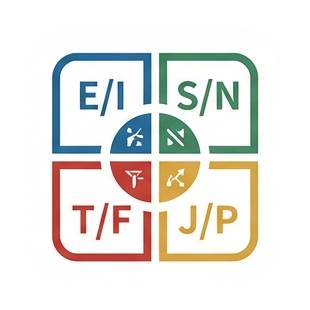MBTI is a world-renowned personality assessment tool used by professionals to understand human behavior. Two of the 16 personality types generated by MBTI are ESFJ and ISFJ. Both are introverted sensing types and have their unique traits that make them suitable for different roles in an organization. This article aims to analyze the ESFJ and ISFJ personality type, their strengths, weaknesses, and how they can contribute to a team.
ESFJ什么意思?
ESFJ stands for Extraverted Sensing Feeling Judging. People with this personality type are highly extroverted, which means they enjoy being around people and socializing. ESFJs have a sensitivity towards other people's feelings, which makes them highly empathetic and understanding. They possess great interpersonal skills, are good at making friends, and build relationships with people quickly.
ESFJs are dependable, practical, and efficient. They have a "by the book" approach to their work, which means they value rules, processes, and procedures. They are loyal and committed to their tasks, and once they start something, they see it through to completion.
However, ESFJs can sometimes be too focused on what is right and wrong, which leads to a limited perspective on things. They also crave validation and appreciation from others, which makes them susceptible to criticism and rejection.
ESFJ的百度下拉搜索词:ESFJ性格特征、ESFJ婚姻、ESFJ职业、ESFJ女性、ESFJ男友。
ISFJ什么意思?
ISFJ stands for Introverted Sensing Feeling Judging. People with this personality type are shy, reserved, calm, and keep to themselves. They are deeply empathetic, compassionate, and have an innate understanding of other people's emotions, which makes them exceptional at providing emotional support.
ISFJs are responsible, reliable, and consistent in their work. They value traditions, rules, systems, and keep the status quo. ISFJs are competent problem solvers, and they have a great memory, making them exceptional at recalling details and important facts.
However, ISFJs can sometimes struggle to accept change and adapt to new environments. They can be indecisive, as they want to make sure they consider all options before coming to a conclusion. ISFJs also tend to avoid conflict, which can lead to them not speaking their mind.
ISFJ的百度下拉搜索词:ISFJ性格分析、ISFJ与ESFJ区别、ISFJ职业、ISFJ女性、ISFJ男友。
ESFJ和ISFJ在团队中的贡献
ESFJs and ISFJs both bring unique traits to the table, making them valuable members of any team. ESFJs are social butterflies, people-centered, and excellent team players. They can be great at organizing events, scheduling, and managing people. They are also proficient at managing conflicts and diffusing stressful situations.
On the other hand, ISFJs are detail-oriented, dependable, and hardworking. They are excellent at handling day-to-day tasks, following standard procedures, and ensuring that everything runs smoothly. ISFJs are also keen observers and can anticipate problems before they arise.
ESFJ and ISFJ members working together in a group can be beneficial for the team. The ESFJ helps build relationships, drives necessary conversations, and serves as the team's communicator. Meanwhile, the ISFJ focuses on the details that help make a project successful.
Conclusion
In conclusion, the ESFJ and ISFJ personality types bring different strengths to an organization. ESFJs are outgoing and relationship-oriented, while ISFJs are detail-oriented and hardworking. Their unique traits contribute to team success and make them valuable members of any group. Understanding each personality type's strengths and weaknesses can help in building an effective and productive team.








